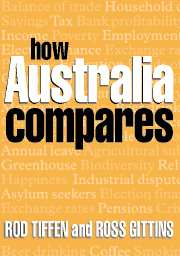Book contents
- Frontmatter
- Contents
- Reading the Tables
- Acknowledgments
- Abbreviations
- Introduction
- 1 People
- 2 Government and Politics
- 3 Economy
- 4 Work and the Labour Force
- 5 Government Taxes and Spending
- 6 Health
- 7 Education
- 8 Inequality and Social Welfare
- 9 International Relations
- 10 Environment
- 11 Science and Technology
- 12 Telecommunications and Computing
- 13 Media
- 14 Family
- 15 Gender
- 16 Lifestyles and Consumption
- 17 Crime and Social Problems
- 18 Religion, Values and Attitudes
- Sources and References
- List of Tables
15 - Gender
Published online by Cambridge University Press: 22 September 2009
- Frontmatter
- Contents
- Reading the Tables
- Acknowledgments
- Abbreviations
- Introduction
- 1 People
- 2 Government and Politics
- 3 Economy
- 4 Work and the Labour Force
- 5 Government Taxes and Spending
- 6 Health
- 7 Education
- 8 Inequality and Social Welfare
- 9 International Relations
- 10 Environment
- 11 Science and Technology
- 12 Telecommunications and Computing
- 13 Media
- 14 Family
- 15 Gender
- 16 Lifestyles and Consumption
- 17 Crime and Social Problems
- 18 Religion, Values and Attitudes
- Sources and References
- List of Tables
Summary
Indices of gender inequality
The United Nations Development Programme has constructed two indices of women's position in society. The Gender Development Index is based on the Human Development Index, but then adjusted to reflect the degree of gender differences on its components.
Overall the GDI rankings are very close to the HDI rankings in Table 1.20. For example, the same five countries rank bottom, and in the same order, in both tables. The fact that the 18-country mean for the GDI is almost identical to the HDI shows that both measures reflect the general affluence and social development of these societies, and that in these aspects of development women are not strongly disadvantaged.
There are three dimensions to the GDI. On the first, longevity, women on average outlive men in all the selected countries. On the second, educational attainment, gender differences have broadly disappeared, and in some countries are now slightly reversed with females outperforming males. This leaves only the third component, differences in earned income, where women tend to score substantially lower.
It may surprise that Australia ranks top on the GDI (Table 15.1). Its premier ranking probably owes most to the increasing educational levels reached by younger Australian females.
The GDI gives scores considerably higher than the second index of women's position in society, the Gender Empowerment Measure. The GEM is designed to reveal women's opportunity to take an active part in economic and political life.
- Type
- Chapter
- Information
- How Australia Compares , pp. 201 - 208Publisher: Cambridge University PressPrint publication year: 2004



